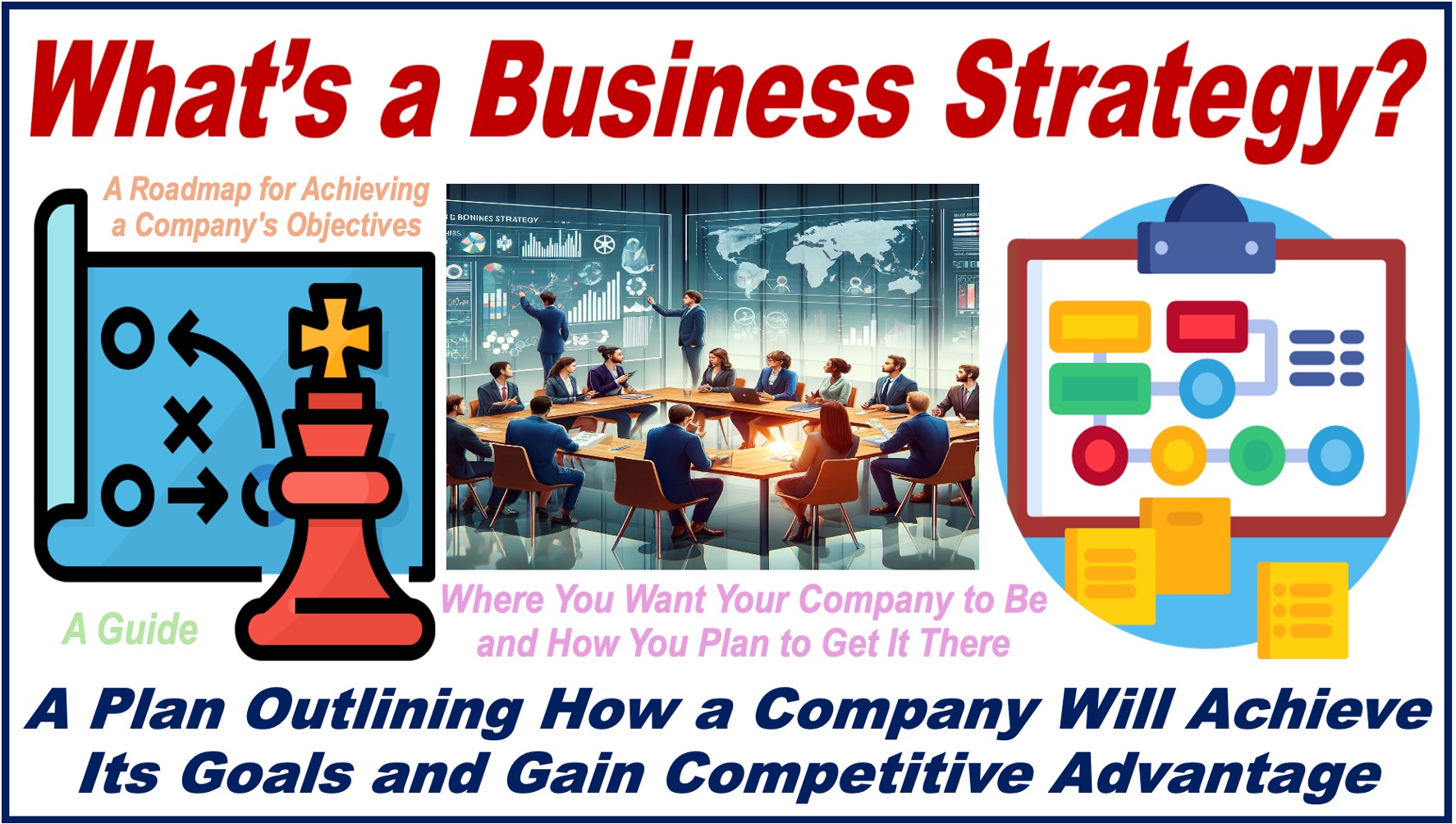A Business Strategy is a plan that outlines how a company will achieve its aims and objectives, compete effectively in the marketplace, and optimize its profitability.
A business strategy details the specific methods an organization will use to position itself, achieve both its short-term and long-term goals, and foster growth over time. It builds on core elements, such as the organization’s mission, vision, and values, to guide its future direction and ensure the successful attainment of its objectives.
If you want to create a business strategy, start with a roadmap outlining how your company will achieve its goals. Think of it as the blueprint that guides you toward success.
An effective business strategy can help your company maintain a competitive advantage.
It is important to remember that a good strategy is not just about what your company wants to become, but how it plans to get there.
Why do you need a business strategy?
If you do not have a well-laid-out strategy, your company risks being blown about by the currents of the marketplace, like a ship without a rudder. Below are some benefits of a business strategy:
Creates Focus
It brings clarity by setting specific goals. This makes it easier for you and your employees or colleagues to work towards a common purpose.
Imagine a high jumper setting their sights on the bar they aim to clear. Their attention and efforts are focused on that precise height. Without a bar, there’s little to measure their leap against. Similarly, in business, a strategy acts like the bar for a high jumper, providing a clear target to aim for.

Aids Decision Making
Making choices without a plan is risky. A strategy provides a framework that can help ensure that your decisions align with the goals of your business.
Promotes Efficient Use of Resources
Every business has limited resources and people. A strategy can help you focus your resources on what truly matters for achieving your company’s objectives.
Defines Competitive Advantage
Knowing where you want your business to be in the marketplace is only half the battle. A strategy can help you figure out what makes your company different and better, and how to exploit those strengths to the full.
Components of a strategy
There are many different types of strategies. However, the best ones usually cover these key areas:
Mission and Vision
Your company’s mission is its purpose while its vision is where it aspires to be in the future. Make sure your strategy mentions the mission and vision of your business.
Goals and Objectives
Your ‘goal’ is where you want your company to be or become in the future, while your ‘objective’ explains how you plan to get there.
If I say, “I want my company to double in size within the next three years,” that is my goal.
If I say, “To achieve that, we should break into new markets abroad, invest heavily in new technology to improve productivity and seek out similar-sized companies for joint-venture operations,” those are my objectives.
Market Analysis
Understanding the playing field – your customers, competitors, and the overall industry – is essential for effective decision-making.
Action Plan
Your action plan is closely tied to your objectives. It includes the specific steps and tactics your company will use to reach its goals.
Evaluation
Measuring results against the strategy is important. You need to make sure you’re on track. You must also have the ability to alter or adjust your course when needed.
Strategy is Dynamic
A business strategy is not set in stone. It should be regularly reviewed and altered if the market changes or initial predictions prove inaccurate. Put simply, a winning strategy must be flexible.
A business strategy is the backbone of a successful company. It can help you make informed choices, focus on what matters, and ultimately achieve your long-term goals.
